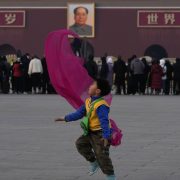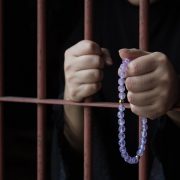In a number of countries, such as India, Brazil, and the US, people or organizations are starting to demand trillions of dollars in compensation from China for the outbreak of the epidemic.
The allegation is simple: Wuhan has the most advanced laboratory for bacteriological warfare in the country. Of all the places in China, the pandemic broke out in Wuhan, in the central Chinese province of Hubei. Therefore, the easiest explanation is that there was an accident in the laboratory. The accident was unreported, covered up by the authorities, and then spilled onto the streets.
To buttress this hypothesis, there is the performance of the WHO (World Health Organization), which supported China’s possibly spotty reporting of the outbreak of the virus. This coverage, of some 3,000 deaths and some 80,000 infected, looks less credible as days go by. On Friday, China corrected its numbers adding some 30% of fatalities to Wuhan, but this new statement doesn’t move the needle of fatalities anywhere near the staggering total of other countries.
How come Italy – with a smaller population than Hubei, four times less densely populated, and a much more advanced health care system – presently has over 20,000 deaths, and the disease is still spreading at full steam? Moreover, Italy surely made a lot of mistakes in handling the disease, but it reacted immediately. It is now clear that in China the contagion went on for about two months without any prevention. Then the death toll in China should be much higher than related by Beijing.
The possible underreporting and cover-up of an accident gravely misled many countries in coping with the contagion when it hit home, goes the argument. Therefore, some organizations believe China should pay a hefty compensation for this serious mistake. The WHO is somehow complicit in this cover up, implies the US which has announced it is withdrawing its financial support from the Geneva based organization.
How much are we talking about?
Republican representative from Indiana Jim Banks reportedly said that Beijing should forgive US debt and face trade tariffs for its role in the global spread of Covid-19. China owns more than US$1 trillion in American debt. This is not the only demand. An association of Indian lawyers, the All India Bar Association (AIBA) possibly with the backing of the Indian government, and a UN conservative group the International Council of Jurists (ICJ) filed a complaint in the United Nations Human Rights Council seeking unspecified amount as reparations from China over the global spread of coronavirus.[1] Moreover, American lawyer Larry Klayman and his advocacy group Freedom Watch filed a lawsuit in a federal court in Texas seeking a staggering US$20 trillion from China, more than twice China’s GDP.[2]
Similar lawsuits have been filed in Florida and Nevada. «Until 1952, the U.S. generally took the position that the immunity of foreign sovereigns was absolute. That year, the State Department took the position that it would more closely scrutinize claims of immunity where the case involved a commercial dispute. That in turn led to the Foreign Sovereign Immunities Act, known as FSIA, passed in 1976, a statute intended (in the words of one federal court) “to protect foreign sovereigns from the burdens of litigation, including the cost and aggravation of discovery”». [3]
Then the legal viability of these lawsuits is in doubt and enforcing an eventual sentence would be even more difficult. But this is not really the point. The point is apparently political – to build a massive, strong case from many sources to corner China in the eyes of global and even Chinese public opinion.
Furthermore, in many countries families of doctors and nurses killed in the pandemic are suing hospitals and health officials because they didn’t have good and sufficient protection to deal with the disease. It could be billions of damages. Will some of those add up to the damages demanded from China? Some lawyers are thinking along these lines.
The Chinese scoff at the accusations, arguing that a similar case could be made against the US about the spread of the AIDS epidemic. But American hawks say AIDS is in the past, never hit global economies so massively, and most importantly, the US never covered up relevant information, like China did and still does.
«A bare-knuckled approach would be a mistake. The People’s Republic of China is not the Qing dynasty and Mr. Xi is not Cixi [the dowager Empress presiding over China’s failed attempts to rebuff western invaders over a century ago]. When push comes to shove, China will punch back, and with more force than that from a band of Boxers armed with swords, spears, shields, prayers and magic rituals», explained veteran China analyst Ben Lim.[4]
But American defense analysts retorted: «Beijing always talks of fighting back but do they realize that this incenses Americans? Americans love to fight even if they are to lose; Chinese do not love fighting and hate losing».
In fact, China may be more fragile than some other countries. It is far more populous (i.e. more demanding) than other countries, with greater reliance on foreign trade, a large middle class whose lives are being disrupted, and a political system too rigid to flexibly withstand whopping political blows.
On the other hand, it’s not just about China. Perhaps the issue for the US is not whether to be “tougher” or “softer” but what to do with China. And also, because China is a global issue, the concern is what the US wants to do with the world.
«The greatness of the classical Greek tragedies lies in their humanizing effect on the spectator or reader – “catharsis”, the purification or purgation of emotions, a metaphor first used by Aristotle in the Poetics to describe the effects of true tragedy on the mind… There are no signs that the tragedy that has overtaken the United States has had any cathartic effect on the country’s political elites», maintains Indian writer M. K. Bhadrakumar.[5]
Neither the US nor China gave a stellar performance of their abilities as global leaders in the largest pandemic of global history, John Pomfret argued.[6] Should we expect a world without leaders? And in this leaderless world, will there be harmony or chaos?
Harmony or Chaos 和 / 乱
In a world of leaders confused and confounded by the largest pandemic in human history, can the Holy Spirit be a guide? Can the light yet deepest words of the Pope be an inspiration?[7]
«Since 2013, there has been a steady rise in the profile of the Vatican and the Pope in international affairs. This has deep historical roots: the failure in global leadership of the US, an international organization, or any other country. The Catholic Church filled a void».[8]
Yet even at the height of its influence, in the European Middle Ages, the Pope never replaced temporal powers, at most he helped to mediate among them. Could he now start to regain some of that mediation ability to avoid at least part of the coming clash?
In a recent essay father Lorenzo Prezzi seemed to indicate that the Holy See is starting thinking on this possibility.[9]
In fact, although tensions are building, as long as the virus is still spreading in the world, this is a moment of lull. The US is getting angrier at China by the day, but so far it has not shaped a strategy to deal with China, nor does it have an idea about what to do with China and the world. This is changing. After looking absent minded for weeks in the face of China’s charm offensive of donating help and support to suffering countries, the US has started reacting in the past few days.
Hundreds of millions of donations have started flowing everywhere, but more importantly American pundits are saying, it’s ok to receive help from China or Russia but it’s wrong to play up a propaganda offensive over it. Possibly one will have to wait for the outcome of the presidential election in November to see what America really wants to do.
In many ways, this might be the end of a trend for isolationist US. Even if Trump were reelected, as today seems likely, it doesn’t look like the US will again try to remove itself from active engagement in world affairs in general and in Europe. Quite on the contrary, America apparently has realized that it can’t afford to withdraw in the least from global engagement, lest it lose even the ground to its own political and economic independence. Yet, it’s still unclear how it will choose to re-engage.
Will China in the meantime come up with a brand-new political initiative to preempt the ongoing foreign political offensive? Usually, China has been passive, and when it tried to be proactive, like with the BRI (Belt and Road Initiative), China often failed to understand foreign and Western sensitivities.
[1] https://www.businesstoday.in/current/economy-politics/icj-aiba-move-unhrc-against-china-over-coronavirus-outbreak/story/400139.html
[2] https://www.businesstoday.in/current/world/usd-20-trillion-lawsuit-against-china-us-group-says-coronavirus-bioweapon/story/399071.html
[3] https://www.bloomberg.com/opinion/articles/2020-03-24/can-china-be-sued-over-the-coronavirus
[4] See https://www.straitstimes.com/opinion/us-china-ties-echoes-from-the-boxer-rebellion
[5] https://indianpunchline.com/covid-19-confronts-american-exceptionalism/
[6] See https://www.washingtonpost.com/opinions/2020/04/07/does-future-still-belong-us-china/?outputType=amp&fbclid=IwAR3YAzFWEjQPzz3bYV1p3j0WB5D-JQt9JdsJovpU9OO7lykyGE_iI4faIK4
[7] See https://www.laciviltacattolica.it/news/il-papa-confinato-intervista-a-papa-francesco/
[8] See my A History of Italy with Chinese Characteristics https://italianhistoryfromchina.com/ chapter 16
[9] http://www.settimananews.it/chiesa/egemonia-futura-diplomazia-vaticana/






The disease is spreading ” at full steam” in italy? That would be news to me and everyone in Italy.
This is a wonderful insightful piece. You have been much more accurate than I have been from the beginning in assessing the magnitude of this disaster. It’ll certainly lead to another cold war and I hope not a military confrontation. Thank you thank you thank you.